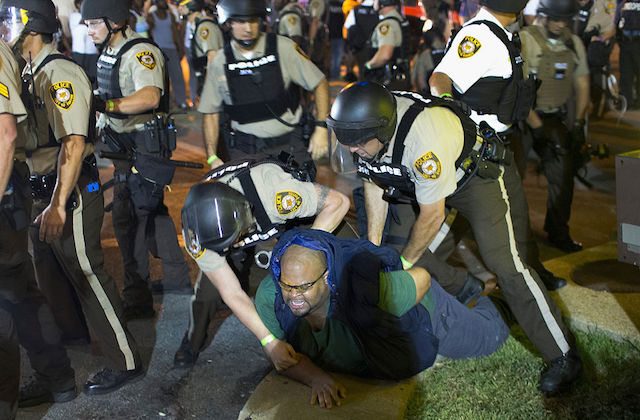A new report explores the impact racial disasters have on communities of color, the work that local organizers do to address them and tools that others can use when crisis strikes.
Released today (March 6), “Movement Mic Check: Rapid Response to Racial Disasters” draws on years of interviews with on the ground organizers who serve in Baltimore, Charlotte, Charlottesville, Detroit, Ferguson, Flint, Minneapolis, New York City and St. Louis. It was created by the Within Our Lifetime network, a coalition of 124 organizations, companies and government agencies that aims to advance “a new sense of what is possible” when it comes to ending racism.
The authors begin the report with an explanation of the impetus behind their research:
Nationally, while racial crises are painfully repetitive, the lessons learned in individual communities are rarely shared because organizers are so over-taxed. The Within Our Lifetime network commissioned this report to address these significant gaps in order to enhance the capacity of local and national organizers to respond quickly, effectively and strategically in crisis moments.
The report centers responses to “crises of radicalized violence,” which it defines as: “A time of intense danger where the burden of harm is strongly influenced or fully determined by the racial identity of the individual or individuals affected. The nature of the danger includes but is not limited to bodily harm of individuals or groups, economic, political and other forms of discrimination and repression.”
It also categorizes the incidents of the last few years—from the Flint Water Crisis to the fatal shooting of Tamir Rice—to illustrate the myriad ways terror visits people of color. The categories are corporate violence, environmental disasters, intra-communal violence (gender), police violence, vigilante violence and White supremacist terror.
The text goes on to highlight recommendations for three distinct audiences: organizers and activists, national organizations that provide support during local actions and funders who invest in the movement at the infrastructure level. Read the full report and access additional tools here.
